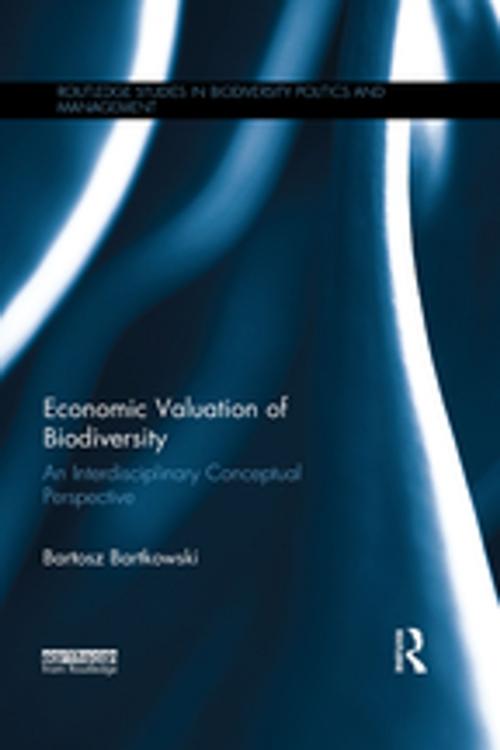Economic Valuation of Biodiversity
An Interdisciplinary Conceptual Perspective
Business & Finance, Economics, Sustainable Development, Nonfiction, Social & Cultural Studies, Political Science, Government, Public Policy| Author: | Bartosz Bartkowski | ISBN: | 9781351708166 |
| Publisher: | Taylor and Francis | Publication: | May 18, 2017 |
| Imprint: | Routledge | Language: | English |
| Author: | Bartosz Bartkowski |
| ISBN: | 9781351708166 |
| Publisher: | Taylor and Francis |
| Publication: | May 18, 2017 |
| Imprint: | Routledge |
| Language: | English |
While biodiversity loss is an ecological phenomenon, it also has further dimensions – political, social and, last but not least, economic. From the economic perspective, the rapid loss of biological diversity can be viewed in two ways. First, the consequence of this deterioration process is a loss of options and an increase in scarcity of the environmental ‘good’, biodiversity. Second, economic activity and the structure of global and local economic institutions have frequently been identified as the major drivers of biodiversity loss. In economic terms, this constitutes a market failure – market-based economic activities lead to processes which undermine the long-term stability of these very activities.
This book provides an ecological economic perspective on the value of diversity in ecosystems. Combining insights from various sub-disciplines of ecology and environmental/ecological economics, the author constructs a conceptual framework which identifies the ways in which biodiversity influences human well-being and offers a novel, unifying perspective on the economic value of biodiversity.
This framework demonstrates that biodiversity’s economic value mainly results from uncertainty about the future, regarding both supply of and demand for ecosystem services, and interconnections between ecosystems. The book goes on to identify suitable methods for economic valuation of biodiversity and discusses the currently underdeveloped and underused approach of deliberative monetary valuation.
Combining a strong theoretical framework with practical examples, this book will be of great interest to students and researchers of ecological economics, ecosystem services, environmental values and environmental and resource economics.
While biodiversity loss is an ecological phenomenon, it also has further dimensions – political, social and, last but not least, economic. From the economic perspective, the rapid loss of biological diversity can be viewed in two ways. First, the consequence of this deterioration process is a loss of options and an increase in scarcity of the environmental ‘good’, biodiversity. Second, economic activity and the structure of global and local economic institutions have frequently been identified as the major drivers of biodiversity loss. In economic terms, this constitutes a market failure – market-based economic activities lead to processes which undermine the long-term stability of these very activities.
This book provides an ecological economic perspective on the value of diversity in ecosystems. Combining insights from various sub-disciplines of ecology and environmental/ecological economics, the author constructs a conceptual framework which identifies the ways in which biodiversity influences human well-being and offers a novel, unifying perspective on the economic value of biodiversity.
This framework demonstrates that biodiversity’s economic value mainly results from uncertainty about the future, regarding both supply of and demand for ecosystem services, and interconnections between ecosystems. The book goes on to identify suitable methods for economic valuation of biodiversity and discusses the currently underdeveloped and underused approach of deliberative monetary valuation.
Combining a strong theoretical framework with practical examples, this book will be of great interest to students and researchers of ecological economics, ecosystem services, environmental values and environmental and resource economics.















